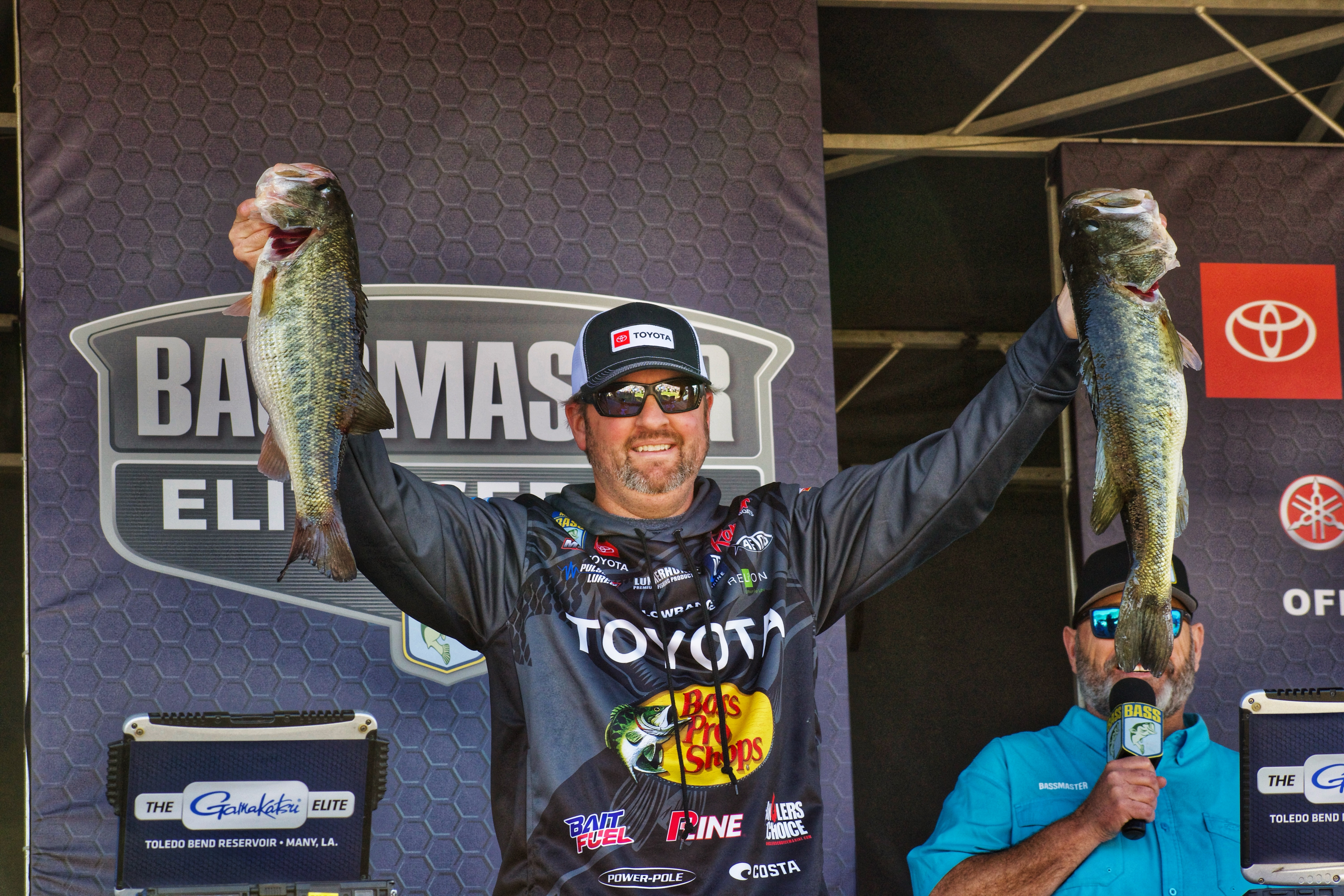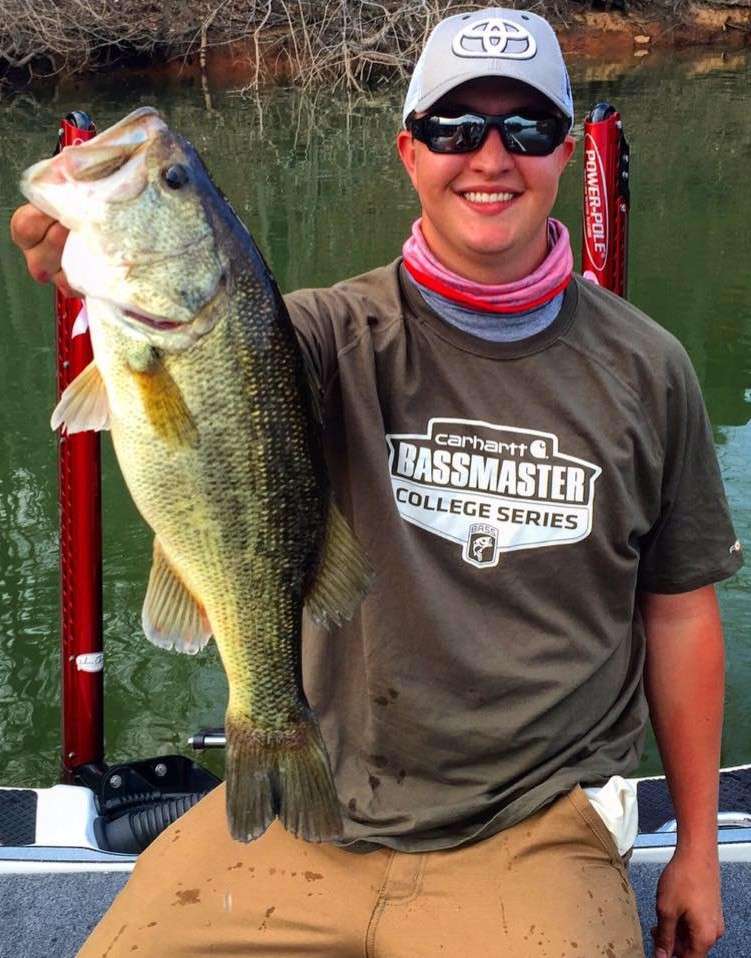
Team Toyota’s Matt Arey took it as a point of pride when he realized he was the elder statesman amongst the group of anglers near the top of the leaderboard heading into semi-final Saturday of the Gamakatsu Bassmaster Elite on Toledo Bend. At forty-three years young, Arey is far from old, but he would classify his fishing roots as old-school. The always-consistent North Carolina pro finished Friday in 13th place and was somewhat surprisingly the oldest angler positioned in the top twenty.
It’s hard to ignore the impressive wave of young fishing talent at the top level of competitive bass fishing the past few years, thanks large in part to the ever-evolving forward-facing sonar technology that has dominated national tournaments as of late. Arey is proving a middle-aged dog can learn plenty of new tricks, as he’s employed FFS to the tune of a paycheck and a shot at fishing Championship Sunday.
“Whether you call it pinging a minnow, moping, scoping, or damiki-rigging; it’s been a big deal for several years now but it’s definitely not flying under the radar in the world of tournament fishing anymore,” Arey said. “I call it crappie fishing for bass because that’s what it reminds me of. It’s all about your electronics and finesse presentations. I used my Lowrance Active Target 2, a couple spinning rods, light line, and a few minnow-style soft plastics on a jig head exclusively to catch my weight on days one and two.”
No matter what you’ve read on social media or believe from watching live coverage, this style of fishing is not nearly as easy as professional anglers make it look. Arey explained that accurate casts have been extremely important on Toledo Bend. He and other pros are trying to land small, lightweight lures directly on a fish’s head in high winds and big waves with a spinning rod.
That’s difficult to do on a relaxed day of fun fishing with your buddy. You add in the stress, emotion, and intensity of an Elite Series tournament and you have a pressure cooker that can affect even the most seasoned anglers. Arey credits much of his success this week to committing to FFS in practice, knowing it was going to play a major role in this first stop of the 2024 season.
“As more of an old-school fisherman I’ve had to embrace the idea of leaning into FFS during practice in order to overcome how I would have traditionally fished this lake,” Arey admitted. “I hate to say it, but I truly believed if I tried to rely on instincts, patterns, or junk fishing on Toledo Bend this week I would get whooped.
“So, I committed 96% of my practice to focusing on FFS and it’s paid off. Whether I like it or don’t like it doesn’t matter. I gotta embrace it and keep getting better at this style of fishing if I want to keep up with the next generation of anglers.”
Arey has proven to do more than just keep up with the young guns on Toledo Bend. He’s been a full-time pro for over 12-years now and just like he’s done throughout his entire career, he’ll continue to adapt and improve at his craft no matter the technique. As he and other veteran pros continue to acclimate to the FFS era of tournament bass fishing, they’ll make their presence felt at the top of the leaderboard no matter the conditions or prevalent fishing style.





